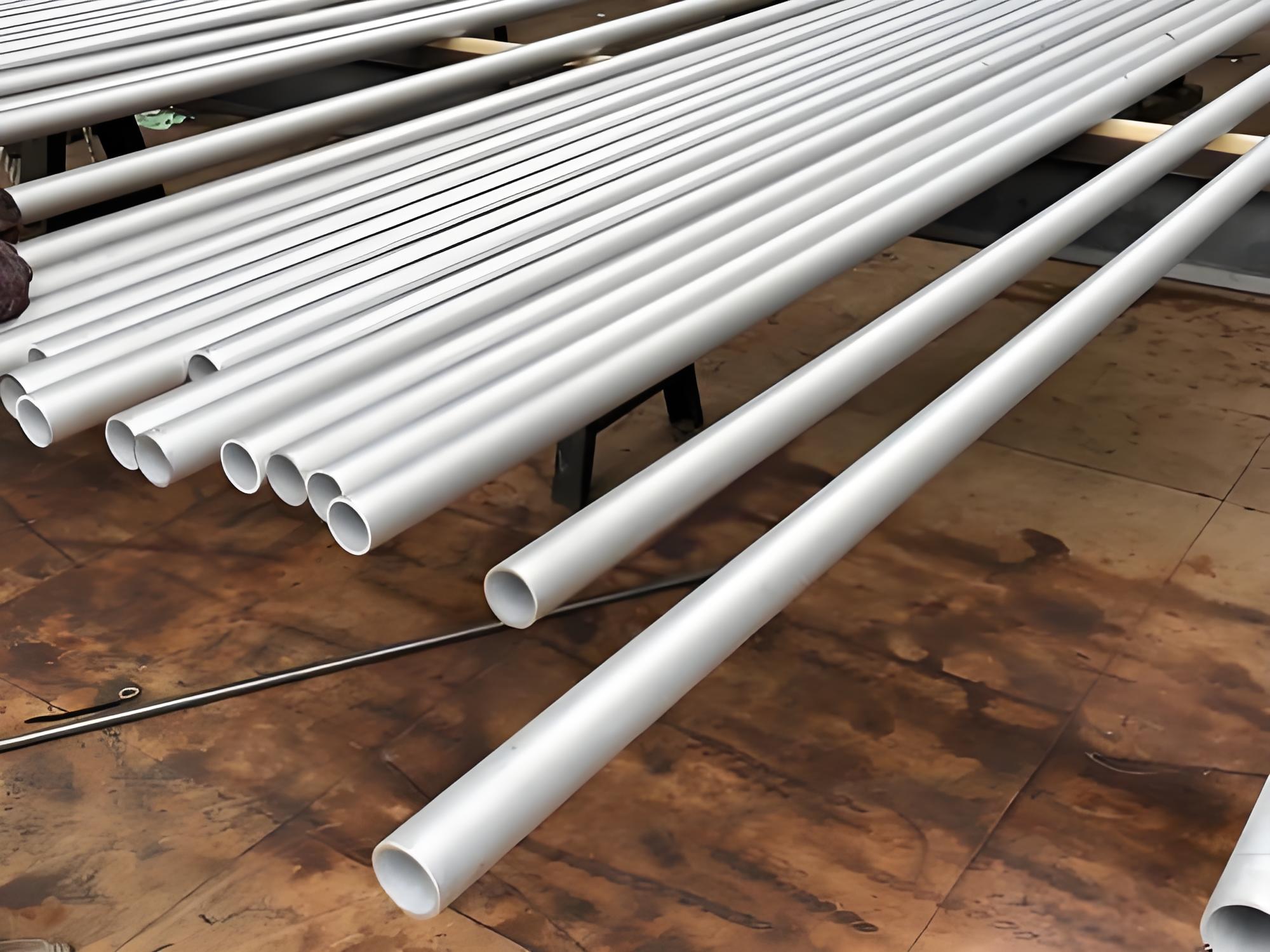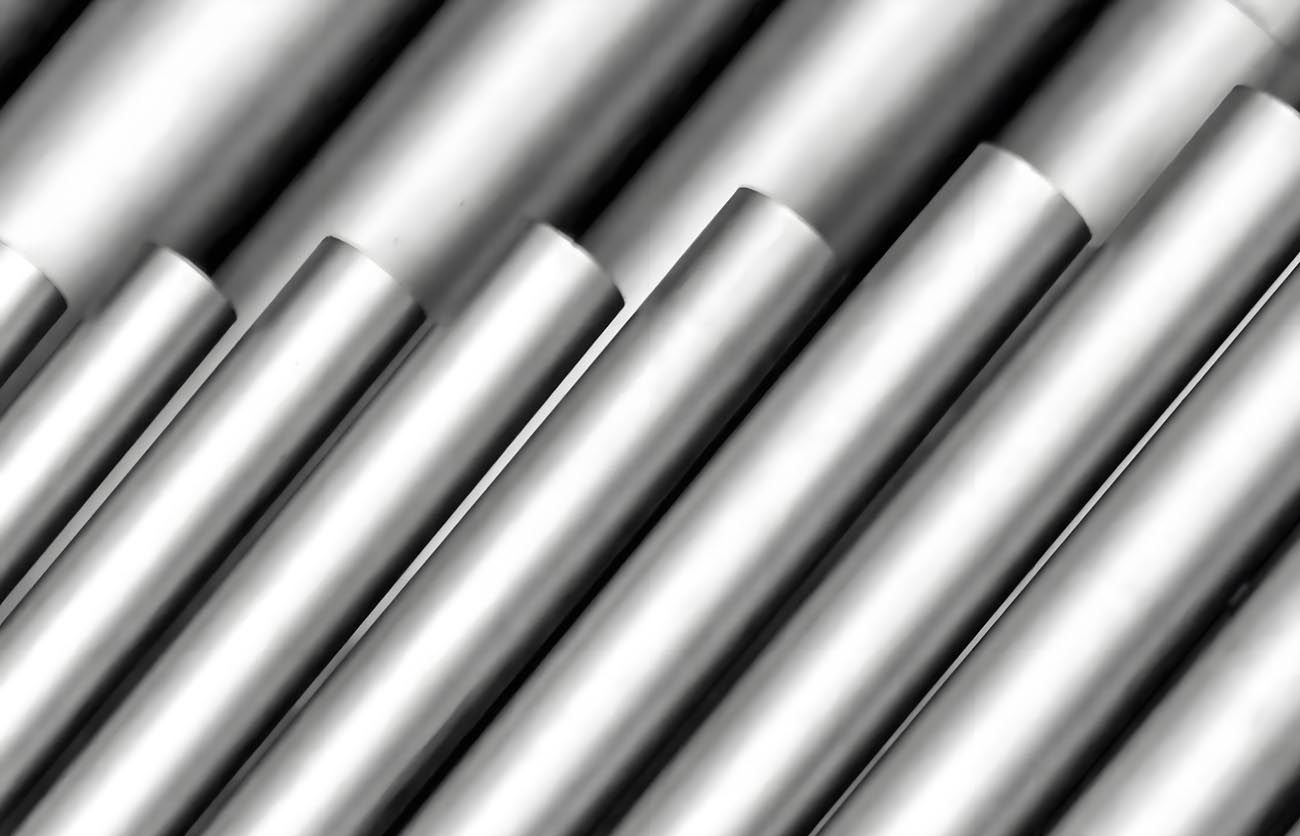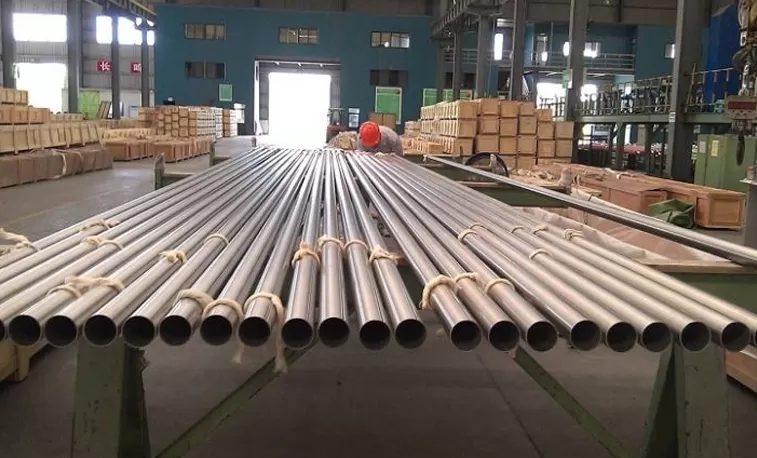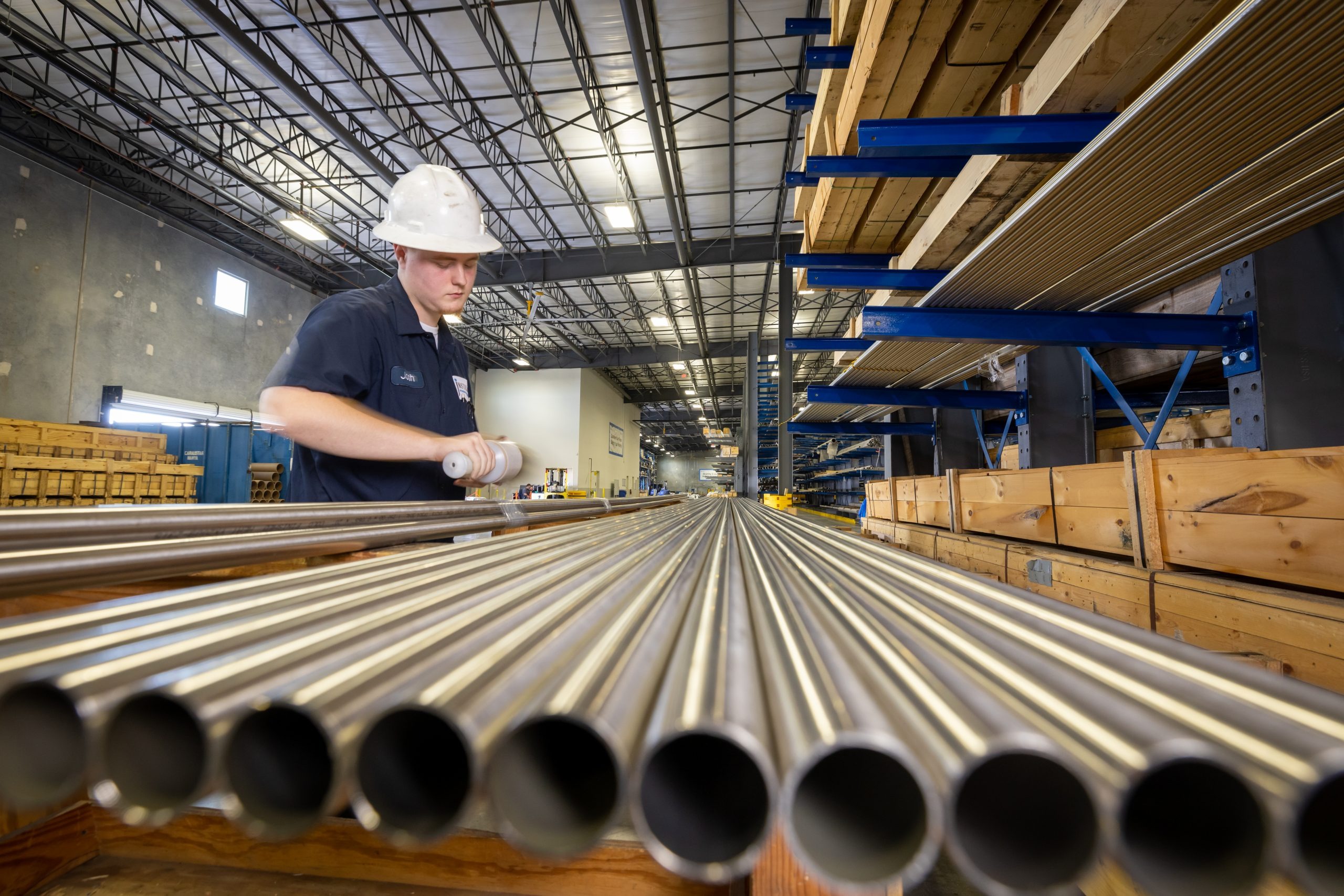Nickel Alloy 52 Steel Tube (UNS N14052)
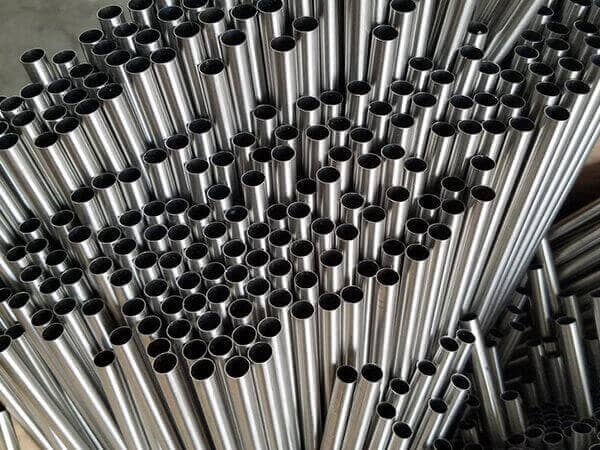
Nickel Alloy 52 Steel Tube (UNS N14052)
Nickel Alloy 52, also known as UNS N14052, is a nickel-iron alloy that is particularly noted for its controlled expansion properties. It is commonly used in applications that require a tight match of thermal expansion rates with certain glass compositions, making it ideal for hermetic sealing applications in the electronics industry.
Chemical Composition
The typical chemical composition of Nickel Alloy 52 is as follows:
| Element | Percentage (%) |
|---|---|
| Nickel (Ni) | 50.0 – 52.0 |
| Iron (Fe) | Balance |
| Cobalt (Co) | 0.50 max |
| Manganese (Mn) | 0.60 max |
| Silicon (Si) | 0.30 max |
| Carbon (C) | 0.05 max |
| Sulfur (S) | 0.025 max |
| Phosphorus (P) | 0.025 max |
Mechanical Properties
Nickel Alloy 52 exhibits a good balance of mechanical properties:
- Tensile Strength: 485 MPa (70 ksi) min
- Yield Strength (0.2% offset): 275 MPa (40 ksi) min
- Elongation: 28% min
- Hardness: 80 HRB max
Physical Properties
- Density: 8.52 g/cm³ (0.308 lb/in³)
- Melting Point: 1430°C (2606°F)
- Thermal Conductivity: 13.4 W/m·K (at 20°C)
- Electrical Resistivity: 0.84 µΩ·m (at 20°C)
- Coefficient of Thermal Expansion: 9.2 µm/m·°C (25-300°C)
- Modulus of Elasticity: 147 GPa (at 20°C)
Industries Predominantly Using Nickel Alloy 52
- Electronics:
- Hermetic seals
- Glass-to-metal seals
- Lead frames
- Aerospace:
- Components requiring controlled thermal expansion
- Electrical connectors
- Medical:
- Medical devices requiring precision and reliability in thermal expansion properties
Typical Manufacturing Specifications
- ASTM F30: Specification for Iron-Nickel Sealing Alloys
- AMS 7238: Nickel-Iron Alloy Bars, Forgings, and Ring Forgings
Available Tube Product Forms
- Seamless Tubing
- Welded Tubing
- Straight Lengths
Typical Applications
- Electronics:
- Hermetic seals and glass-to-metal seals in electronic components
- Lead frames for semiconductor devices
- Aerospace:
- Components that require precision in thermal expansion properties, such as connectors and hermetic seals.
- Medical:
- Devices and components that benefit from the controlled expansion properties of Nickel Alloy 52.
Welding and Fabrication Characteristics
Welding
- Weldability:
- Nickel Alloy 52 can be welded using conventional welding methods such as Gas Tungsten Arc Welding (GTAW/TIG) and Gas Metal Arc Welding (GMAW/MIG).
- Filler Metals: Matching composition filler metals are typically used to maintain the alloy’s properties.
- Preheating and Post-Weld Heat Treatment (PWHT):
- Preheating: Generally not required, but cleanliness is crucial to prevent contamination.
- PWHT: Not typically required for Nickel Alloy 52, but can be performed to relieve stresses if necessary.
- Weld Defects and How to Avoid Them:
- Porosity: Ensure clean surfaces and proper shielding gases to minimize porosity.
- Cracking: Control welding parameters to avoid hot cracking.
Fabrication
- Machining:
- General: Nickel Alloy 52 is relatively easy to machine compared to other high-nickel alloys. It can be machined using standard techniques.
- Coolants: Use water-based coolants to reduce heat and friction, thus extending tool life and improving surface finish.
- Tooling: Carbide tools are recommended for better performance.
- Forming:
- Cold Forming: Nickel Alloy 52 can be cold-formed using standard methods. It has good ductility, allowing for significant deformation without cracking.
- Hot Forming: Hot forming is typically conducted at temperatures between 760°C and 982°C (1400°F and 1800°F).
- Heat Treatments:
- Annealing: Annealing is typically performed to soften the material and relieve stresses. For Nickel Alloy 52, annealing temperatures range from 760°C to 980°C (1400°F to 1800°F), followed by air cooling.
- Stress Relieving: Stress relieving can be performed at temperatures around 480°C to 650°C (900°F to 1200°F) for 1-2 hours, followed by air cooling.
- Surface Cleaning:
- Pickling: Use a pickling solution of sulfuric acid or nitric acid to remove oxides and scale formed during heat treatment or welding.
- Mechanical Cleaning: Grinding and brushing are effective for removing surface contaminants, but care should be taken to avoid embedding iron particles, which could lead to corrosion.
Best Practices for Welding and Fabrication
- Cleanliness: Maintain a clean work environment to prevent contamination. Contaminants such as sulfur, phosphorus, lead, and zinc can lead to weld defects and corrosion issues.
- Tooling: Use dedicated tools for Nickel Alloy 52 to avoid cross-contamination from other metals.
- Controlled Environment: Whenever possible, perform welding and fabrication in a controlled environment to minimize the introduction of impurities.
- Training: Ensure that welders and fabricators are specifically trained for handling high-nickel alloys to achieve the best results.
Conclusion
Nickel Alloy 52 (UNS N14052) is a versatile material known for its controlled thermal expansion properties, making it ideal for applications requiring precision, such as in electronics and aerospace industries. It offers a good balance of mechanical and physical properties, making it suitable for various demanding applications. By adhering to best practices in welding and fabrication, engineers and fabricators can ensure high-quality results and reliable performance in their intended applications.

